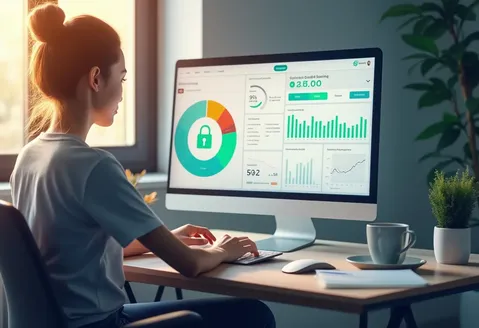Learn how to perform a free Experian credit check to monitor your credit scores and protect against identity theft.
Understanding the Importance of Credit Monitoring
Credit monitoring is an essential tool for anyone looking to maintain or improve their financial health. It involves regularly checking your credit reports and scores to stay informed about your credit status. Here are some key reasons why credit monitoring is crucial:
- Early Detection of Identity Theft: By monitoring your credit, you can quickly spot unauthorized accounts or inquiries, allowing you to act swiftly.
- Improve Credit Scores: Regularly reviewing your credit reports helps you understand how your actions affect your credit score, enabling you to make informed decisions.
- Access to Accurate Information: Monitoring provides you with insights into your credit history, helping you spot errors and dispute inaccuracies.
In today's digital age, where identity theft is rampant, utilizing experian credit check free services can significantly help in safeguarding your financial wellbeing.
How to Get a Free Experian Credit Check
Obtaining a free Experian credit check is a straightforward process. Follow these steps to get started:
- Visit the Experian Website: Go to the official Experian website.
- Sign Up for a Free Account: Click on the option for a free credit report and create an account by providing your email and creating a password.
- Verify Your Identity: Experian will ask you to provide personal information, including your Social Security number, date of birth, and address, to verify your identity.
- Access Your Credit Report: Once your identity is verified, you can access your credit report and check for any discrepancies.
This process ensures that you can monitor your credit reports and scores without incurring any costs.
Understanding Your Credit Report
Your credit report is a comprehensive document that outlines your credit history. Here are the main components:
- Personal Information: This section includes your name, address, and Social Security number.
- Credit Accounts: Lists your credit accounts, including credit cards, loans, and mortgages, along with their payment history.
- Credit Inquiries: Shows the inquiries made into your credit report, which can be either hard or soft inquiries.
- Public Records: Includes bankruptcies, liens, or foreclosures.
Understanding these components is crucial for managing and improving your credit score. Regularly reviewing your report helps ensure that all information is accurate and up to date.
Improving Your Credit Score
Improving your credit score can open doors to better loan terms and interest rates. Here are some strategies to enhance your credit score:
- Pay Bills on Time: Late payments can negatively impact your score. Set reminders or automate payments.
- Reduce Credit Card Balances: Aim to keep your credit utilization ratio below 30%.
- Limit New Credit Applications: Avoid opening multiple credit accounts in a short period, as this can lower your score.
- Regularly Check Your Credit Reports: Use the experian credit check free service to identify and dispute any inaccuracies.
Implementing these strategies can lead to significant credit score improvement over time.
Protecting Yourself from Identity Theft
Identity theft can have devastating effects on your financial health. Here are some proactive steps to protect yourself:
- Use Strong Passwords: Ensure that your online accounts are secured with complex passwords.
- Monitor Your Accounts: Regularly check your bank and credit card statements for any unauthorized transactions.
- Utilize Experian's Identity Theft Protection: Consider signing up for identity theft protection services.
- Be Cautious with Personal Information: Avoid sharing sensitive information unless absolutely necessary.
By being vigilant and utilizing tools like the experian credit check free , you can significantly reduce your risk of falling victim to identity theft.














